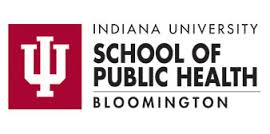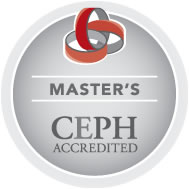 In addition to undergraduate degrees, the IU School of Public Health offers an array of graduate degrees, including the Master of Public Health (MPH). Pursuing a MPH opens the door to careers in preventing disease, promoting health, and helping people improve overall quality of life. The beauty of an MPH degree is its versatility. IU MPH alumni work in an array of settings: health departments, research institutions, health clinics, community centers, not-for-profits, just to name a few. Each student comes to the MPH program for different reasons and with their own personal goals for the future. About this time two years ago, I was just realizing that the MPH degree was right for me, so I thought I would share my story for the others out there who might be trying to make up their minds about what to do next.
In addition to undergraduate degrees, the IU School of Public Health offers an array of graduate degrees, including the Master of Public Health (MPH). Pursuing a MPH opens the door to careers in preventing disease, promoting health, and helping people improve overall quality of life. The beauty of an MPH degree is its versatility. IU MPH alumni work in an array of settings: health departments, research institutions, health clinics, community centers, not-for-profits, just to name a few. Each student comes to the MPH program for different reasons and with their own personal goals for the future. About this time two years ago, I was just realizing that the MPH degree was right for me, so I thought I would share my story for the others out there who might be trying to make up their minds about what to do next.
I’ll admit it–until pretty recently, I didn’t know what public health was. The only careers in health I’d learned about in school were medical ones. I first discovered health promotion by chance during undergrad at an orientation week fair. Something compelled me to go to the first meeting. It was the right choice. Week after week, we talked about health topics that got me fired up and planned programs to help educate our student population on those issues. It was after a program that I had a leadership role in planning and facilitating that I realized I wanted to pursue a career in prevention. After a quick Google search of “health education”, I soon discovered that a broad range of careers awaited me in public health. To continue working in prevention and health education after I graduated, I identified the Master in Public Health degree as the best next step for me.
 The CEPH accredited MPH program at IU has eight different concentrations, and each includes 43 credit hours. Each concentration offers its own specialized area of focus (see below). Within each curriculum are five courses in core public health areas. Students also take courses in their concentration areas and electives of their choosing. The curriculum is designed this way to ensure that each student has the foundation they need to work in public health. Through just the first two weeks of my internship, I have already utilized information learned in each of the core courses—they are invaluable. The MPH courses also involve a fair amount of service learning, which I found to be the most beneficial part of the coursework. I got to observe health education programs being offered at MCCSC schools and in the community. I also got to participate in a few of the programs. My class worked with elementary students at a local school to teach the students about nutrition and physical activity. We saw what was happening in the “real world” and got to apply what we’d learned in class.
The CEPH accredited MPH program at IU has eight different concentrations, and each includes 43 credit hours. Each concentration offers its own specialized area of focus (see below). Within each curriculum are five courses in core public health areas. Students also take courses in their concentration areas and electives of their choosing. The curriculum is designed this way to ensure that each student has the foundation they need to work in public health. Through just the first two weeks of my internship, I have already utilized information learned in each of the core courses—they are invaluable. The MPH courses also involve a fair amount of service learning, which I found to be the most beneficial part of the coursework. I got to observe health education programs being offered at MCCSC schools and in the community. I also got to participate in a few of the programs. My class worked with elementary students at a local school to teach the students about nutrition and physical activity. We saw what was happening in the “real world” and got to apply what we’d learned in class.
The Eight MPH Degree Concentrations
| Behavioral, Social and Community Health | Biostatistics |
| Environmental Health | Epidemiology |
| Family Health | Physical Activity |
| Professional Health Education | Public Health Administration |
Two other important components of the MPH program are the field experience and culminating experience. During the fourth and final semester of the program, you spend the entire semester working in the field and completing projects that challenge you to apply everything you’ve learned so far. The field experience is also a great opportunity to try working in a particular setting that interests you and build your network. As I referenced previously, I am currently working in my internship. I am very excited to be working at Healthy Communities in Columbus, IN. The culminating experience requires students to review their achievement of the MPH competencies and demonstrate that achievement through a final project. The final projects differ for each concentration in order to align with the specific competencies of each degree track. More information on the MPH degree and the program components can be found here.
Pursing an MPH degree and career in public health has been one of the best decisions I’ve ever made. Working in public health allows me to educate people on ways to improve their quality of life and advocate for the importance of prevention in health care.
 Rachel Brown is a second-year graduate student. She is pursuing a Master of Public Health with a concentration in Professional Health Education. Rachel loves sharing her passion for health and wellness with others, traveling to new places, and enjoying a good meal.
Rachel Brown is a second-year graduate student. She is pursuing a Master of Public Health with a concentration in Professional Health Education. Rachel loves sharing her passion for health and wellness with others, traveling to new places, and enjoying a good meal.


